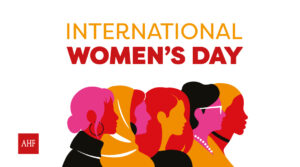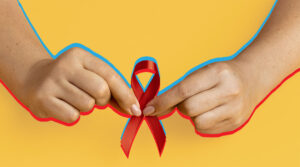Research from the Massachusetts Institute of Technology (MIT), in the United States, showed that a new vaccine, administered through the nasal mucosa, could protect against infections such as HIV or SARS-CoV-2 (the virus that causes COVID-19 ), since it is capable of generating antibodies that fight these microorganisms.
“Winning by a nose”
As in classic horse racing, the journal Science Translational Medicine used this expression to present the approach of the study.
The research team, led by Dr. Brittany Hartwell, started from the fact that many viruses enter the body through the mucous membranes (in the case of HIV, through the vaginal or rectal mucosa, and in the case of SARS-CoV-2, by the nasal, buccal or ocular mucous membranes).
Despite this, the vaccines developed so far are mainly delivered intramuscularly through injections. This is due, in part, to the fact that the various attempts to create a mucosal vaccine have had a poor immune response, that is, they do not stimulate the organism enough to generate protection in it.
However, Hartwell and his collaborators developed a type of protein, called “amph protein”, which was given to mice and non-human primates and triggered a favorable immune response, both in the mucosa where the vaccine was administered and in other distant mucosa.
Amplifier effect
As the EFE news agency explains, this experiment formulated “amph proteins” by conjugating them with two viral proteins: one called Env gp120, which is found in the outer envelope of HIV, and another known as RBD (receptor binding domain protein, for its acronym in English) that is present in SARS-CoV-2, and is the one that binds to human cells.
Thus, these “amph proteins” were administered through the nasal mucosa of mice and Rhesus macaques and elicited high concentrations of immunoglobulin G and immunoglobulin A (IgG and IgA) antibodies in various mucosal tissues.
The results showed that the intranasal vaccine was able to raise the levels of IgG and IgA antibodies from 100 to 1,000 times in the mice, both in the blood and in the respiratory mucosa, in addition to the mucosa of the genital and urinary areas.
They also increased neutralizing antibodies against SARS-CoV-2 in blood, nasal passages, and lung lavage samples. In addition, in macaques, a 10-fold increase in the specific response of IgG and IgA antigens in blood and nasal mucosa was observed.
All these measurements were obtained by comparing the levels with those produced by unmodified proteins, so that in various animal specimens and by taking into account different markers, the potential of the technique used was verified.
The researchers believe their results indicate that mucosal-delivered “amph” protein-based vaccines are a promising strategy for boosting mucosal immunity against HIV, SARS-CoV-2, and other infections.
It would bring more benefits
The possibility of being successful in a nasally administered vaccine involves important benefits. For example, existing SARS-CoV-2 vaccines have been successful in preventing (most) cases of severe illness and death, but they were not created to curb infection.
In an entry published by the Spanish Association of Vaccinology, Dr. José A. Navarro-Alonso explains that, until now, there is only one intranasal vaccine authorized in the United States, which fights a certain type of influenza (A-H1N1 pdm09). However, scientists are confident that one day, vaccines of this type may be more effective than intramuscular ones against COVID-19, as they would strengthen the defenses in the route of entry of the virus, preventing the disease itself from occurring.
But while vaccines are perfected and, above all, equitable access to them is achieved, infections such as the new coronavirus and HIV will continue to be a global health concern.
It is in your hands to protect yourself, as much as you can, from viruses such as HIV, and to prevent it from spreading further we have two fundamental tools: the use of a condom and the detection test. Remember that AHF Latin America and the Caribbean have both tools and we offer them to you for free. Locate our closest center in your country and find out about our services.






